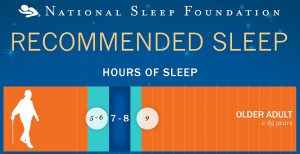TYPICAL SIGNS & SYMPTOMS OF SLEEP DEPRIVATION
Typical Signs of Sleep Deprivation.
🥱 Amplified cortisol and other stress hormones - driving change in behaviour.
🥱 Weakening & vulnerable immune system - undermanned T-Killer cells activating cold & flu.
🥱 Appetite Imbalance - namely; insulin imbalance leading to poor pick-up choices.
🥱 Increased inflammation - hello annoying joint and tendon niggles.
🥱 The decline in thermoregulation – namely, cold extremities.
Does this sound familiar?
❎ Reduced cardiovascular output (reduced fitness).
❎ Reduced muscular strength (slumping posture).
❎ Depressed (reduced management of challenges).
❎ Intolerant and easily angered.
❎ Respond to stress with little thought.
❎ Lowered sexual interest.
❎ Increased interest in sugar hits.
❎ Sniffling or irritating head colds.
❎ Require caffeine to function.
❎ Flakey skin & dry lips.
❎ Sore eyes around 3 pm.
❎ Low interest in exercise.
❎ Warm temples and oily scalp.
❎ Annoying joint or muscle niggles.
❎ Weight gain around the belly.
❎ Upper-respiratory infections, namely, athletes.
6 am
⁍ 6 am marks the release of the hormone, cortisol, which triggers your brain and body into action.
⁍ Cortisol is fired in the 'fight & flight stress response, and, while too much cortisol can lead to ill-health, a small, timely hit is critical.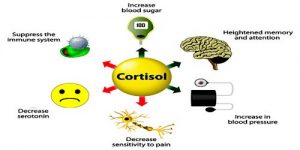
⁍ Along with cortisol, another key wakening hormone, Vasoactive Intestinal Polypeptide (VIP), sparks into gear providing an increase in heart rate, breathing rate, blood vessel widening, and importantly, drives glycogenolysis. This process amps up a much-needed spike in blood sugar to get things moving for the day.
⁍ VIP also promotes bowel movements, with, at this time of day, being best for such practice.
⁍ I've found about 300mg of magnesium and a strong black coffee (about 150mg caffeine) does the trick should your pipes be somewhat unresponsive.
7-8 am
⁍ Between 7 -8 am your body should receive a hit of the hormone, ghrelin.
⁍ Ghrelin is responsible for making you feel hungry. Consuming a 'nutritious' breakfast is vital in resetting your circadian clock.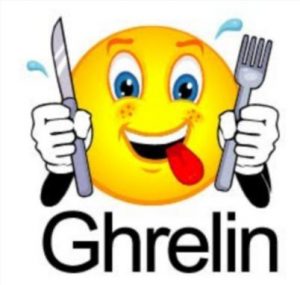
⁍ Key point; Ignoring the feelings caused by ghrelin will likely mess up your metabolic & sleeping cycle later in the day.
⁍ Sleep deprivation will also drive ghrelin. Meaning, tiredness drives hunger, and usually for all the wrong choices [namely; sugar & trans fat].
⁍ A good breakfast practised daily drives good sleep.
⁍ Based on 30 years experience, I know a breakfast ratio offering 50% of total cals coming from 'good' fats to be best, for most people.
⁍ Importantly, exercise, performed at 'your' relative 60-70% of max sustainable effort is best at this time. Thumping harder sessions, for most, work against your best functioning circadian rhythm. You'd be best saving harder sessions for later in the day (more on this later).
8-9 am
⁍ Here comes the sun - direct sunlight is now King in activating your healthy best circadian rhythm. 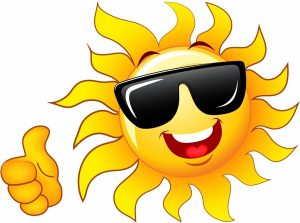
⁍ As little as 5 minutes will drive a perfect balance of cortisol & serotonin, which, control much of a ticktock circadian clock.
⁍ Classically, one's mood, behaviour, and attitude dips in shorter winter days.
⁍ Coffee, green tea, and adaptogenic herbs can mimic 'some' of the sun's good influence.
⁍ Europeans are now using a device called The Human Charger (15 minutes a day) which sends light through the ear towards the brain.
9-10 am
⁍ Sex hormones are at their peak, which seems an odd time of the day, but hey, if it's on, it's on!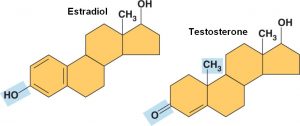
⁍ It's important to note, a healthy circadian rhythm, has one, 'up for it'. This is normal!
⁍ So far, if you've moved easily, grabbed a few rays, visit the bathroom, and perhaps got lucky! You're on circadian course for a great sleep.
10-1 pm
⁍ You're now on high alert. Concentration is at full tilt.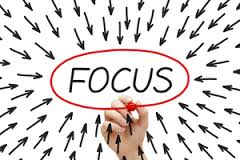
⁍ Alpha Waves are neural oscillations providing mental clarity.
⁍ Now is the time to write your #1 hit song.
⁍ Performing your most complex intellectual tasks should be performed now!
⁍ Save all your easy stuff for later in the day.
1-5 pm
⁍ Around 2 pm signals your peak muscle reaction, coordination & balance time.
⁍ While logistically challenging for most people, between 2-3 pm marks an excellent athletic opportunity.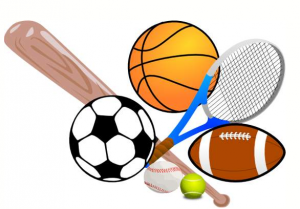
⁍ Nerves are firing best, muscle, tendon & ligament temperature is optimum, and brain waves are still sharply ranging between alpha & theta.
⁍ Around 5 pm marks your optimum cardiovascular efficiency, best body temperature, muscle repair, protein synthesis, and workout-recovery capability peak, so this is an even better time of day to exercise, especially if your workout is intense.
⁍ I'm not a fan of training hard in the morning, preferring to 'thump it', when appropriate, for this time in the day. I guess I feel there's more bang for my buck - see The Dream On Project for more info.
⁍ I recommend a minimum of 4 hours post evening training sessions before hitting the sack - for best sleeping conditions. The body requires adequate cooling time.
⁍ If you've read my thoughts on nutrition, or checked out the 10 Day Gut Reboot, you'll know I strongly believe in higher 'good' fat choices for breakfast & lunch being best. And, consuming appropriate carbohydrate choices best kept for later in the evening. This way, if you've trained a little harder, carbs food choices will be used for energy with little influence on insulin balance - this is good. Equally, what happens 40 minutes after a sweet bomb insulin coma? You crash!
5 -9 pm
⁍ With the sun setting you can expect your blood pressure to be at its highest. So, in the event of a frustrating 5 pm meeting, don't assess your blood pressure now!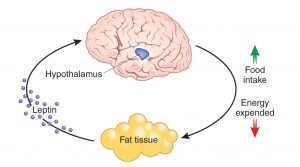
⁍ Sunset also promotes the hormone leptin. Leptin's job is to breakdown stored body fat and use it as your preferred fuel source for the next 12 hours - so you don't have to break your sleep to eat. We like leptin! More leptin more fat loss!
⁍ It is important to note; An overdrive of nighttime light and a big heavy meat meals limit leptin release - this is not good. Late-night snacks with your head slapped up against a screen is a circadian rhythm nightmare.
⁍ Leptin should continue to elevate, suppressing your appetite and ripping into your fat reserves - till about 3 am.
⁍ Boosting insulin balance right before bed with sweet fixes, or excessive alcohol will again limit leptin and another fat driving helper, the hormone, Adiponectin.
⁍ A caveat to the whole sugar spike thing is the fructose factor; Meaning, some fruits, like Kiwi fruit, loaded with fructose, consumed in the evening will help your sleep. You should feel sleepy about 20 minutes after consumption. The fructose won't disrupt insulin or leptin balance.
⁍ I also found 200mg of magnesium before bed contributed to fat loss and to a better night of sleep.
⁍ I'll outline what I believe is your best circadian-friendly evening meal later in The Dream On Project. But know, I do favour a few 'selected carbs at this time of the day!
9-11 pm
⁍ Around 9 pm your body temperature will be at its highest - exercise aside! This is why, males mainly, kick sheets off early and blanket hog in the early hours of the morning.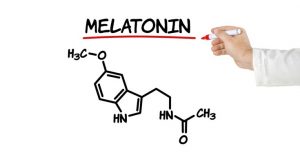
⁍ OK, let's assume you've followed the ideal sleeping conditions listed in The Dream On Project, you should experience heavy-set eyes sometime between 9-11pm.
⁍ This is the hormone melatonin kicking into overdrive.
⁍ Melatonin slows the heart rate, lowers adrenalin & cortisol, lowers blood pressure, lowers body temperature, and should shut down your gastric system. The last thing your circadian rhythm needs during sleep time is being broken with bathroom stops.
⁍ Around 11 pm, leptin really cranks up, so, please, if you'd like to reach your ideal weight, be asleep when Santa rocks up.
11 pm-2.30 am
⁍ Around 12-1pm melatonin shuts off brain firing, allowing for ultimate filtering & repair. Delta brainwaves will now drive Sleeping Phases 3-4 - this is key to a night of good night sleep.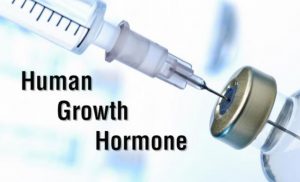
⁍ 1-2 am brings HGH (Human Growth Hormone) central. It's time to repair, everything. No deep sleep - no repair - this is a problem.
2.30 am-6 am
⁍ Between 2 am - 6am your core temperature falls most drastically.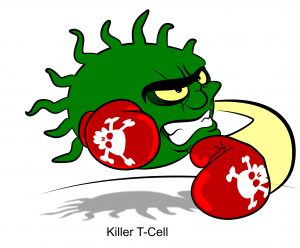
⁍ This is time for ultimate neural rejuvenation, which sometimes can cause muscle cramping. A pinch of Himalayan salt in water before bed can fix this.
⁍ Perhaps most importantly, around 3 am your T cell [killer cells] gain strength and numbers. This is key for continued wellness.
⁍ Also, this is the time your anti-inflammatory system kicks into overdrive. If you're carrying an injury, you want to be asleep at this time.
⁍ Around 4 -5 am your bodies core temperature is at its lowest - so, prepare accordingly (more on this later).
⁍ Cortisol starts kicking in around 5.30 am, which raises your temperature, and bingo, you start again.
THE LEADING REASONS FOR POOR SLEEP!
In no particular order;
😩 Mental & emotional stress.
😩 Little direct sunlight, particularly the first thing in the morning.
😩 Little physical activity.
😩 Elevated body temperate later into the evening (late exercise, warmer weather, hot showers).
😩 Alcohol later in the evening causes an increasing body temperature - 3 hours post-consumption.
😩 Bedroom blue lights (electronics, phones, etc).
😩 Snoring (personally & partner).
😩 Dust mites.
😩 The adaptive period from the keto nourishing model.
😩 Changes in altitude.
THE NATIONAL SLEEP GUIDE ON SLEEP VOLUME.
How much sleep do the experts suggest you need?
Well, it depends!
Age, activity, genetics, environment, mental strain & stress, can all determine one's optimum rest time.
And, of course, it can change from day-to-day.
However, the National Sleep Foundations 'general' guide provides a good reference.
Click below for the full report.
WHAT IS YOUR CHRONOBIOLOGY? ARE YOU A LION?

